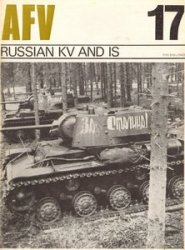The camp Kommandant is responsible for the entire camp in every way.
His first duty is to guarantee the security of the camp permanently.
He is to be available at all times. Every important event in the camp must be reported to him immediately.
If he leaves the area of the camp he must delegate in writing his deputy to take control of the camp. He then is fully responsible in the Kommandant’s absence for the entire camp. The protective custody camp commander is always the deputy. Upon the Kommandant’s return, he returns control of the camp, again in writing, to the Kommandant. If the Kommandant is away for more than twenty-four hours, he must have the approval of the inspector of concentration camps. The Kommandant must be constantly alert and must be able to handle any situation that may arise. His decisions should be clear and well thought out because the consequences often have great significance.
In case of an emergency such as an escape attempt or a rebellion, the entire Guard Battalion down to the last man is at his disposal. For the duration of the emergency, the camp Kommandant has full power to give all orders, and he determines the course of actions taken.
The officers of the guard companies are at that time subordinate to the Kommandant.
The Kommandant must lecture and instruct those officers and men who are subordinate to him about their duties and jobs, especially about camp security and how to deal with prisoners.
In order to put every prisoner to work, the Kommandant must create suitable work. He must oversee all jobs.
The Kommandant determines the duration of the prisoners’ workday as well as the time to move out to the work sites and return to camp.
Inspections of the camp must have the authorization of Himmler or the inspector of concentration camps.
All inspections must be led by the Kommandant, unless he is absent, then his deputy must lead the inspection.
After the inspection is completed, those who inspected the camp must be sworn to keep secret all they saw.
The adjutant is the first assistant to the Kommandant and has a special position of trust. He must ensure that no important event in the camp remains unknown to the Kommandant.
The adjutant is the superior of all noncommissioned officers and men of the Kommandant’s staff. All of the incoming mail is presented to the adjutant who looks it over and then separates it for the different departments and units.
He handles all correspondence of the Kommandant’s office with offices outside the camp and departments.
He signs F. A. or A. B. on all those documents which are not important or have a repetitious content.
He is the caseworker of the Kommandant’s staff and proposes all nominations and promotions to the Kommandant.
He also works on disciplinary matters and watches over the Penalty Book.
He is particularly responsible for appointments and their dates.
All confidential matters are personally worked on by him and he is responsible for their safekeeping.
In case there is no officer or noncommissioned officer available to teach the ideology of the Third Reich, the adjutant must take care of teaching the Kommandant’s staff himself.
All of the news organization of the camp comes under the control of the adjutant. He is responsible for the entire news mechanism functioning smoothly.
He is responsible for the arms, ammunition, and all the equipment of the Kommandant’s staff. By continuously inventorying supplies, he has to ensure that everything that must be there—is there.
During the daily change of the guard, the officer of the day and the first watch commander report to the adjutant, present their duty reports for his information, and sign them.
As additional assistants, the adjutant may use the staff sergeant and several capable noncommissioned officers from the Kommandant’s staff.
The adjutant is in charge of vehicle and driver readiness.
He is responsible for the orderly and correct issue of all orders pertaining to transportation.
The director of the Mail Censorship Office is subordinate to the camp Kommandant and is responsible for the dispatch of all mail in and out of the concentration camp.
For censoring the prisoner mail, he has SS men from the Kommandant’s staff at his disposal.
The prisoner mail must be read painstakingly and in detail in order to prevent undesired communication with or from the outside. Objectionable mail is to be placed in the prisoner’s file.
If there is any suspicion of actual dissemination of nonpermitted news about the camp or exchanged letters with families or similar offenses, the Kommandant can order surveillance of the mail of the identified SS families. This mail surveillance has to be carried out personally by the director of the Mail Censorship Office.




 World History
World History









